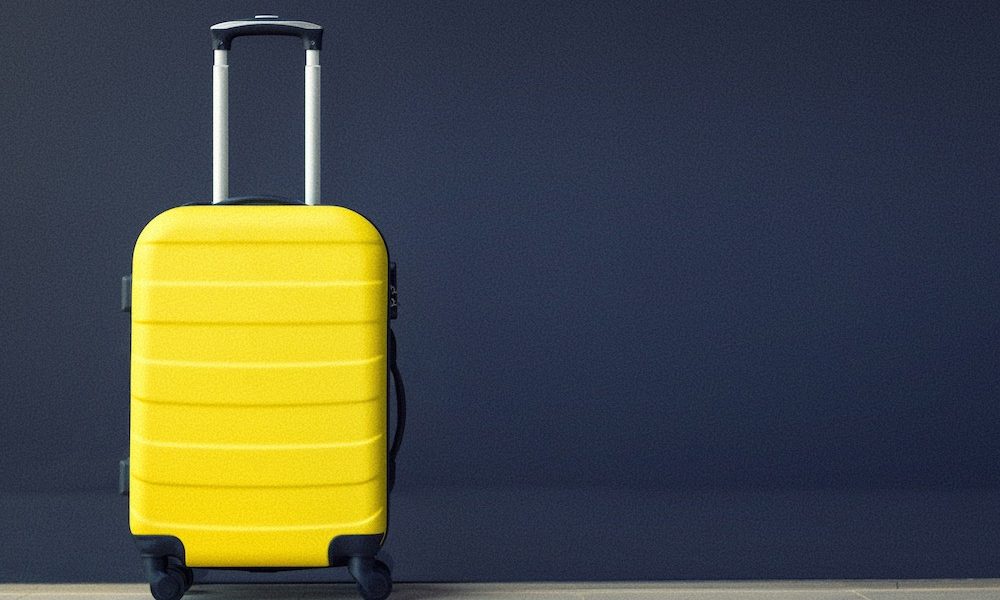While vacationing is meant to be a fun occasion, it can pose different challenges for those who are in recovery from an eating disorder. Here’s what you need to plan ahead and stay in the moment.
BY: KELSEY FYFFE, MA, LPC
Preparing for a vacation can often be stressful. And for those who are taking trips while recovering from an eating disorder, the stress of going out of town can be amplified.
You’re not in control of your food and possibly not even your schedule. And while it’s already challenging getting dressed in the morning, a vacation may mean confronting a swimsuit or clothing challenge sooner than you wanted to.
While it can be difficult, it is completely doable if you’re prepared. Here are a few tips for traveling while in recovery.
1. Pack your own snacks.
When you’re traveling with other people, you won’t have complete control of what and when you can eat. This means your standard meal times will change, and the group may not want to eat when you need to. And when the available food is viewed as a problem or challenge for you to consume, restriction may seem like an easy solution. This is where snacks come in.
Work with your dietitian to craft a snack list that will help fill the gaps in your meal plan, and bring foods that meet exchanges for protein, carbs, and fats. Keep snacks with you at all times and in every bag – from plane snacks for traveling, to purse snacks for sightseeing, to suitcase snacks for when you’re in your hotel. That way, regardless of the eating challenges you encounter, you can supplement with your own food.
2. Bring clothes that both scare and comfort you.
Warm weather means tank tops, shorts, swimsuits, and dresses. Cold weather means leggings and puffy jackets. Regardless of the weather, chances are high that you will probably face at least one clothing exposure while on vacation. Be sure to pack clothes you feel safe in, but consider also bringing the clothes that scare you as additional options, such as a swimsuit or pair of shorts.
Your anticipatory anxiety (the anxiety you experience as you think about something that hasn’t happened yet) is often so much worse than actually doing it. You might find your desire to be comfortable completely outweighs your fear of how you look in a pair of shorts.
Packing appropriate clothing also reduces opportunities for isolation. If you don’t bring your swimsuit, you may end up in your hotel room by yourself while your friends and family are hanging out at the pool. If you bring it, however, you can still find a way to lounge by the water and be social.
3. Reserve time for self-care.
With all these opportunities for potentially uncomfortable food and clothing situations, you will need some time to yourself. Find time every day to decompress on your own and recenter your mind on recovery. Let your travel companions know in advance when you plan to take a siesta and use that time for self-care. Consider making a self-care packing list that includes all the items you may need. For example:
- Workbooks for keeping therapy topics top of mind
- Journal for processing your feelings
- A notecard with your 5 favorite coping skills
- Entertainment (ie. a good book or device loaded with TV, music & movies)
Don’t underestimate how stressful traveling is during recovery, which can lead to feelings of guilt for not fully enjoying your trip or overwhelm from the challenges that arise. It’s OK, and remember, you’re allowed to struggle. Please show yourself compassion – enjoy what you can, and give yourself permission to feel your feelings.
4. Go with someone who understands.
Make sure at least one person on your trip is an ally to your recovery. If you’re new to recovery, it will probably be hard to speak up about feeling triggered or needing to stop for a snack.
An ally can back you up by suggesting the group eats dinner sooner rather than later, or change the subject when someone starts talking about the great new diet they’re on. A trusted friend can offer support and help you sort out your eating disorder thoughts from your healthy self.
If it’s not possible to travel with an ally, consider having a phone-a-friend option. Let someone know you’ll need regular text and phone support while you’re on your trip. Everyone fears their need for support will burden their loved ones, but it can in fact bring your loved ones comfort knowing they are able to help. You can also consider online support groups to get an instant encouragement boost.
5. Embrace one challenge per day.
When you approach situations with fear, you are more likely to be afraid. When you approach situations with curiosity, you are likely to experience something new. Promise yourself that you will practice curiosity by taking on one challenge per day.
Maybe it’s a cup of gelato, or asserting your need for a break. Whatever it is, step into your anxiety and do something that scares you. You’ll feel empowered, capable, and less afraid of the next challenge.
Remember, recovery success while traveling is all about preparing for what you can and embracing what you can’t.
Work with your treatment team to come up with an appropriate plan, and remember –
Show yourself compassion if things don’t go exactly your way.
Adapted from the original article.
Kelsey Fyffe, MA, LPC is a clinically-trained therapist based in Houston specializing in anxiety and eating disorders. By helping individuals recognize that their anxiety, worries, and obsessions do not have to hold them back from living the life they want, Kelsey helps them learn the skills and strategies needed to calm their mind and feel at ease. Learn more about Kelsey at Live Mindfully Psychotherapy.

